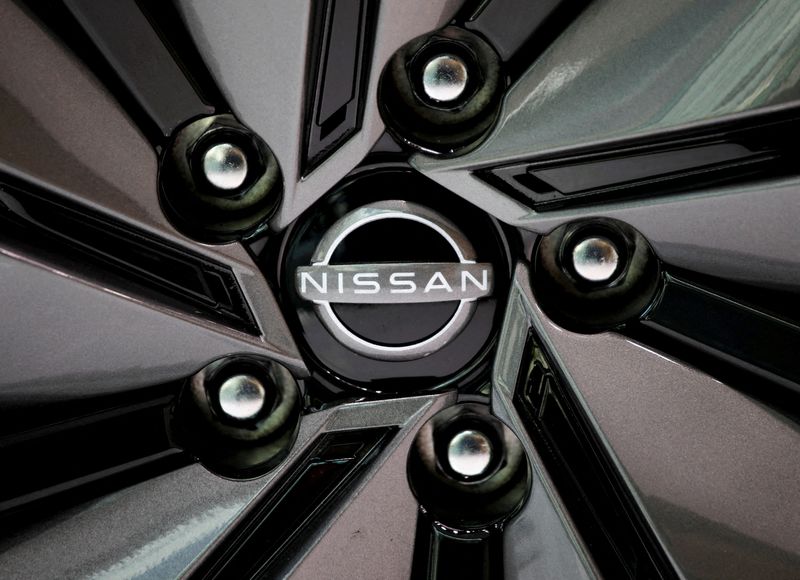By Daniel Leussink
YOKOHAMA, Japan (Reuters) - Japan's Nissan (OTC:NSANY) Motor will begin to produce solid-state batteries for electric vehicles at scale by early 2029 and use huge casting machines as it seeks to raise efficiency and drive down costs on future models, the automaker said on Tuesday.
Nissan is betting on technological advancements to stave off heavy competition from rivals such as Tesla (NASDAQ:TSLA) and BYD (SZ:002594) that have raced ahead in production of battery-powered cars.
Japan's third-biggest automaker by volume will initially do prototype tests and develop the solid-state batteries at a still unfinished pilot plant in Yokohama, a city near Tokyo where it is based, before building up production capacity. Solid-state batteries are expected to charge faster and last longer than conventional ones.
Nissan expects to make its first solid-state batteries at the site from March 2025 and will deploy 100 workers per shift to step up production to 100 megawatt hours per year from the financial year starting April 2028.
The automaker will also use heavy-force machines to produce the rear floors of EVs to be sold from a year earlier, a process that will lower manufacturing costs by 10% and bring down weight of components by 20%, it said.
Nissan has used casting boards for structural parts of front air conditioners for over 15 years at its Tochigi plant, said Hideyuki Sakamoto, executive vice president for manufacturing and supply chain management.
The automaker considered various things for manufacturing car bodies, he added. "In the end, we decided to use a 6,000 tonnes gigacasting machine to make the rear body structure of cars using aluminium casting."
Nissan plans to launch 30 new models over the next three years. Of those, 16 will be electrified, including eight all-battery powered vehicles and four plug-in hybrids.
The automaker, which was a pioneer in EVs with its all-battery-powered Leaf, now seeks to bring down the cost of the next generation of such vehicles by 30% to make them comparable to internal combustion engine models by 2030.

Nissan is considering a strategic partnership with larger domestic rival Honda (NYSE:HMC) Motor to work together on making key components for EVs and artificial intelligence in automotive software platforms, the companies said last month.
(This story has been officially corrected by Nissan to say that production will be 100 megawatt hours per year, not per month, from FY2028, in paragraph 4)